Workforce
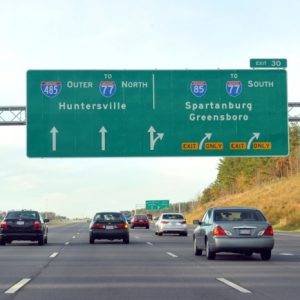
A border problem? Unexpected ways the state line influences our behavior
We don’t often think about crossing state lines. Other than changes in gas prices or the availability of fireworks, there’s little visible difference as you cross from North Carolina into South Carolina, or vice versa. This similarity was one of the fundamental assumptions of our Carolinas Urban-Rural Connection project – we expected our 32-county region […]
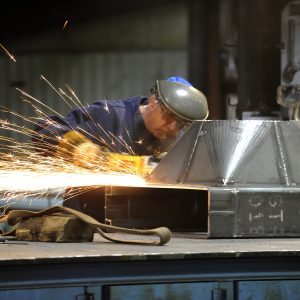
The changing economic development landscape
“Regionalism” has become something of a public policy bromide these days — an unwritten assumption that informs the planning, economic and growth decisions that supersede any one political jurisdiction. But what is easy to say can be hard to do. For the Carolinas Urban-Rural Connection project, a two-year effort to understand the distinct ways Charlotte […]
The urban-rural workforce connection
There’s a not-too-surprising insight about how the labor market is changing across the Carolinas Urban-Rural Connection region, which became clearer from real-time commuter data: out-of-county commuting rates are rising. Many more people work in a different county from where they live. While people are traveling farther for well-paying work, leaders charged with workforce and job […]
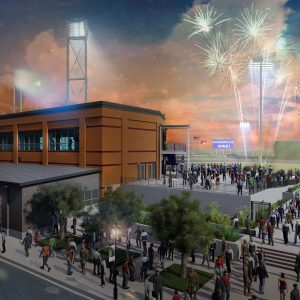
Baseball as a redevelopment strategy? Three cities pin their hopes on it
In the wake of manufacturing-based economies that once formed the basis for much of the region’s prosperity, three cities and towns in the Carolinas Urban-Rural Connection study area are hoping the crack of a bat will herald economic revival. Gastonia and Kannapolis were once textile powerhouses, while High Point remains an important player in the […]
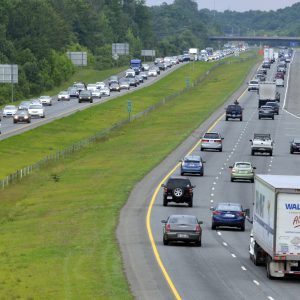
Commuting and the Charlotte region’s economic connections
An array of environmental, cultural and economic connections together give rise to the interdependence of the Carolinas Urban-Rural Connection study region. But none of these connections are more economically significant than the flow of workers within our regional economy. Counties within the region relied on out-of-county commuters for their workforces more in 2015 than at […]

People appear to commute farther for certain kinds of jobs
To better understand commuters in the Carolinas Urban-Rural Connection region down to the individual level, we studied anonymized cell phone tracking data at select employment locations, seeking to determine how commuter connections differ between types of business districts and types of firms. By mapping the residential location of workers at a broad range of employment […]
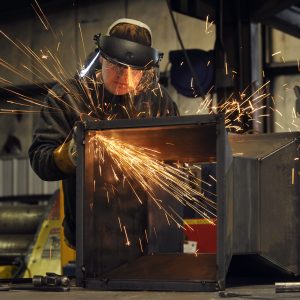
How can we reconnect North Carolinians to opportunities and good jobs?
To move up the ladder of opportunity, there’s generally consensus that people need jobs that pay a living wage, where they can grow their earnings over time. But what’s the best way to get workers, especially low-income workers with barriers such as low educational attainment, connected to those jobs? That’s the focus of the ReCONNECT […]
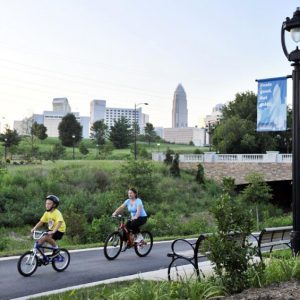
Historical Overview Part 3: The rise of banking builds a globally connected region
While Duke was building the world’s largest electrical network in the Western Piedmont, some Charlotte mill owners recognized that more money could be made loaning money to aspiring industrialists than making cloth themselves.
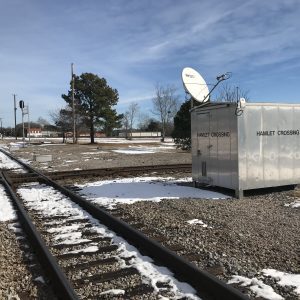
Trails, roads, rails and sky: The changing physical connections that knit our region together
A growing web of infrastructure and physical connections – both within the wider region and between the region and the outside world – has had a profound effect on where growth went, and where it stayed away from. People and industries in the Carolinas Urban-Rural Connection study area followed trading paths, railroads, highways and, now, air service.
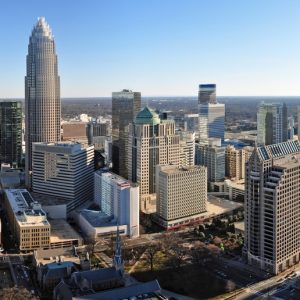
The Urban Institute Research Faculty Fellows seek to better our region
A new program designed to identify solutions for some of the pressing needs and issues facing the greater Charlotte region is getting underway this fall at the UNC Charlotte Urban Institute. For the first time, the Institute has named a cohort of Faculty Fellows to conduct research projects and work alongside local stakeholders to understand […]